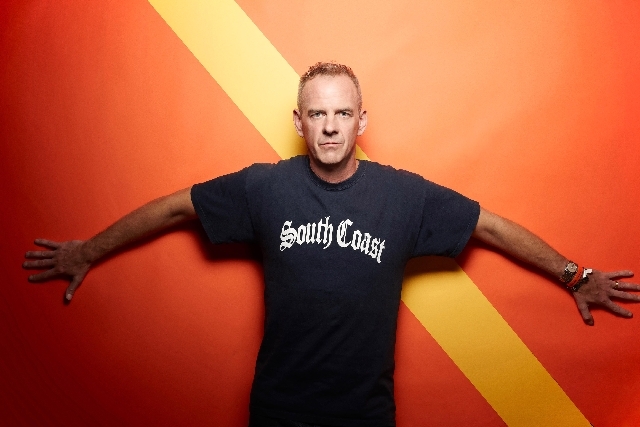Fatboy Slim back in Vegas for Electric Daisy Carnival, club shows

The last time I talked to Fatboy Slim, in 2011, he was DJing in America for the first time in many years. He told me to tell you: “Hi America. I’m back. Let’s pick up where we left off.”
But after Fatboy Slim played that 2011 show at Marquee Dayclub, he turned around and went back to England for two years.
So what went wrong in Las Vegas? He explains it to me first with this joke:
“I imagined living Liberace-style in a Vegas penthouse with my family, and I could just look downstairs and play every night,” Fatboy Slim tells me.
“I did not realize I had to commute — which was not as lavish and high-roller ish as I’d thought,” he says with a laugh.
Oh well. At least Fatboy Slim is back in town this weekend, big time. You can see him:
■ Friday at Tao nightclub.
■ Saturday at Electric Daisy Carnival.
■ Sunday at Hard Rock Hotel’s Rehab dayclub pool party.
The serious answer to why Fatboy Slim (real name Norman Cook) did not stick around Las Vegas two years ago, is :
Everything was different for him here in 2011 than it was in the late 1990s and early 2000s, when he became a legend for introducing American pop radio to electronic dance music via “Praise You,” “Rockafeller Skank,” “Gangster Tripping,” “Right Here, Right Now,” “Weapon of Choice” and “Going Out of My Head.”
“Me and the Chemical Brothers would come over and say, ‘Here’s how we do it,’ ” he says.
“But the Americans have taken the ball and run with it.”
So now America doesn’t need him as desperately as before, because we finally have other EDM pop stars, from David Guetta to Deadmau5.
“I kind of feel like I’m not in control anymore,” Fatboy Slim says.
And how does he feel about that?
“It’s refreshing,” he says. “Coming in and seeing what people like Guetta and Deadmau5 have created is awesome — and I mean that in the Old English sense of the word. I’ve been struck with awe.”
This is where I tell Fatboy Slim, yes, Deadmau5 is great and all, but Fatboy Slim, 49, is a legend. He says “thanks” and that he’s trying to fill that role.
“The one thing I have learned is, my place in the food chain is definitely as the representative of the old school,” he says.
“The last time I played Ultra (the music fest), it was like: ‘Whatever I play, I can’t play like Calvin Harris or Guetta. What they do is so much bigger and better than me.’
“So I concentrate on historical references and taking it back to the clubbiness of it, rather than the stadium pizzazz.”
In other words, it was Fatboy Slim who (a generation ago) helped transform club music into radio hits and mainstream concerts.
But now that America has turned club music into pop music, Fatboy Slim is staying away from pop and embracing less-mainstream club dance vibes again.
“I’m trying to remind people of where it came from,” he says.
I tell him: “That makes you a contrarian.”
“I think I’ve always been like that,” a contrarian, he says. “I think that’s why I’ve gotten away with it so long. I never go exactly with the flow. I’m always trying to stay one step ahead — or one step apart.”
Doug Elfman’s column appears on Page 3A in the main section on Mondays, Tuesdays, Thursdays and Saturdays. He also writes for Neon on Fridays. Email him at delfman@reviewjournal.com. He blogs at reviewjournal.com/elfman.